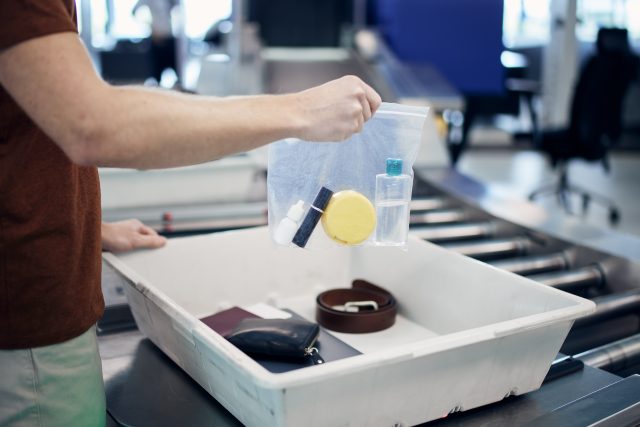Another UK airport scraps the 100ml liquid limit
By Jessica MasonPeople travelling through Birmingham Airport will no longer be required to restrict liquids to 100ml in hand luggage from June 2024.

Introduced as part of the airport’s security hall re-build, bosses at BHX have confirmed that the “next generation” security facility that is on course to be completed by next summer will give passengers more flexibility with how they travel with their liquids.
The changes, which see Birmingham Airport join both London City Airport and Teesside International Airport in revealing plans to ditch the 100ml liquid rule to bring greater volumes of liquid in hand luggage through security means that transporting drinkable souvenirs will become significantly easier.
The adaptations at Birmingham Airport follow a £20 million screening upgrade that will see the security provider Smiths Detection taking over checkpoints.
The hope, according to local reports, is that scrapping the former 100ml liquids restrictions will also assist in speeding up security queues that are prone to congestion during peak times. It may be a positive step forwards for wine tourism destinations that are just a short-haul flight away by meaning that any bottles bought while travelling could, potentially, be brought home without needing to check in suitcases.
Partner Content
According to BHX chiefs, the new scanner from Smiths Detection will produce high-resolution volumetric 3D images meaning that at Birmingham Airport instead of the 100ml liquid restriction for hand luggage, travellers will instead have a new limit of two litres of liquids in carry-on luggage.
The 100ml liquid limit was introduced in 2006 following foiled terrorist plans to smuggle liquid explosives disguised as soft drinks onto a plane flying from the UK to the US and Canada.
However, the new scanners, which can take a 3D X-RAY image of luggage as it goes through security, can distinguish between dangerous and non-dangerous liquids, eradicating the need to place all liquids in a separate plastic bag, something that has been the norm for airport security for almost two decades.
Should the new technology be adopted worldwide, it is anticipated that it will have a hugely positive knock-on effect on the drinks sector due to encouraging tourists to buy bottles at their holiday destination as opposed to only at the airport.
Related news
Freixenet celebrates Mother's Day with multi-channel activations
Why the wine rarely vanishes – the truth about cooking with alcohol




